Text
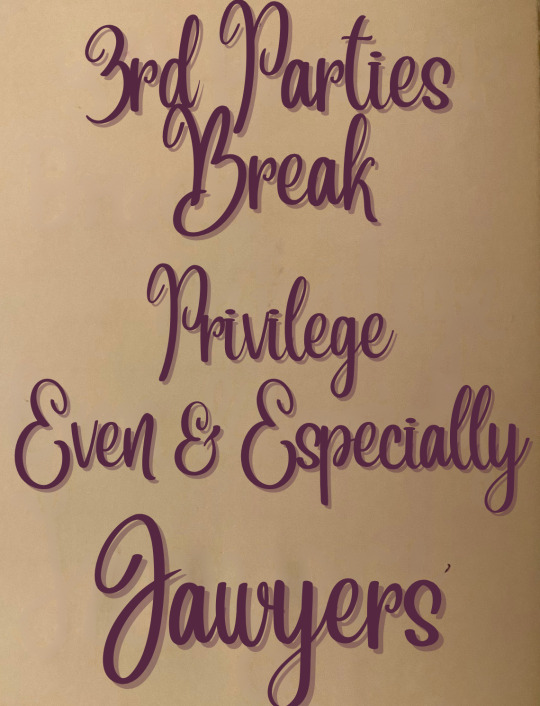
3rd Parties Break Privilege
Even & Especially Lawyers
Lawyers for 2 different sides negotiate a contract via back & forth emails. Each side makes comments & proposed changes on the drafts.
The MANY different versions of drafts.
Are the drafts protected by privilege?
2 scenarios:
The other side / opposing counsel sent the drafts - Not privileged
During a back and forth negotiation, except in rare situations, opposing counsel’s presence in a correspondence constitutes a 3rd party that breaks privilege.
2. The other side sent their most recent draft which was subsequently distributed internally between company attorneys who added their comments to that draft; the draft was kept company confidential - Privileged or Partially privileged
This draft would be protected by privilege or the internal comments from attorneys would at least get redacted before the draft could be produced. Legal work, review, advice, etc on a draft from the other side is protected by privilege, even if the draft itself (without the lawyers’ comments) is not protected by privilege anymore.
Related situations:
Email correspondence attaching the same drafts:
If the email includes opposing counsel: Not privileged
If the email is shared internally with attorneys and kept company confidential : Privileged
#attorney client privilege#discovery#privilege#3rd party sharing#attorneys#lawyer#partial privilege#law#drafts
1 note
·
View note
Text
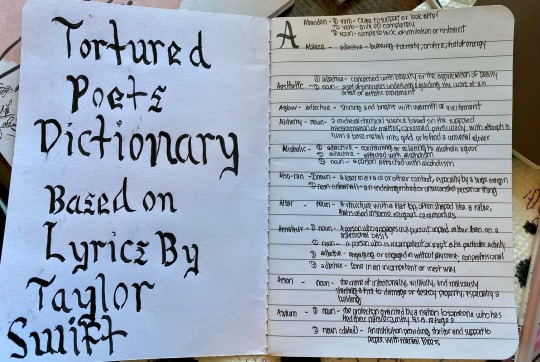

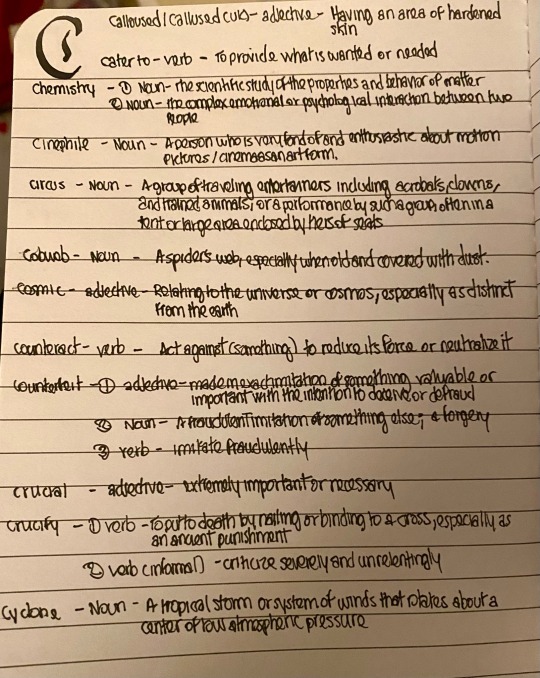
A, B, and C of my handwritten @taylorswift / The Tortured Poets Department lyrics - based dictionary so far
💕 Hey kids, vocab is fun!
#taylor swift#the tortured poets department#ts ttpd#ttpd#handwriting#handwriting tag#handwrote#dictionary
2 notes
·
View notes
Text
So I’m a Swiftie and found a way to put @taylorswift in my law blog so I did it of course.

Swift Discovery Lessons
It’s no secret I’m a huge Taylor Swift fan so of course I jumped at this opportunity to use this to discuss board meeting minutes, agendas, and attorney-client privilege.
Let’s say this was a real board meeting agenda, as many Swifties would likely argue that it is. And let’s say Taylor Nation wanted to keep the discussion of the evidence privileged.
What practices should The Tortured Poets Department use to preserve privilege?
It’s good that the agenda mentions the purpose of reviewing evidence during the meeting. However, I’d highly recommend making it abundantly clear that an attorney(s) will attend the meeting, participate in this review, and provide legal advice.
I’d either advise keeping the subject matter simple so it doesn’t reveal too much information, but enough to make the topics of the meeting clear. The department did pretty well in that regard.
Any further legal detail should either get sent separately, or put in a distinct section to make it easier to facilitate necessary redaction.
The department should only send the agenda and subsequent minutes on a “need-to-know” basis, likely only including board members and attorneys. The department should also specify very clearly that the information must remain confidential and the recipients are not to distribute it to third parties.
If the meeting minutes include legal advice, the department should include a very clear legal section in the minutes and specify that its contents are protected by attorney-client privilege. If the discussions pertain to a litigation, I also advise labeling it as attorney work product, in case an argument is made that meeting minutes aren’t a “communication” and therefore wouldn’t have attorney-client privilege protection. However, since the notes would constitute a summary of a communication, I don’t know how much success an attorney making that argument would have. BUT it doesn’t hurt to take the extra step to be on the safe side!
All credit for the photo and its contents go to Taylor Swift and Taylor Nation. And for a fortnight I get to feature Taylor Swift in my law blog… 🎶
Anyone else listening to TTPD ? I’m loving it so far, what about you?
#taylor swift#ts ttpd#ttpd#the tortured poets department#attorney client privilege#discovery#lawyer#privilege#attorneys#work product privilege
2 notes
·
View notes
Text
Post about partial privilege
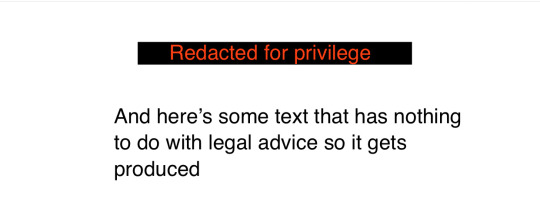
REDACTED FOR PRIVILEGE
Lawyers use redaction as a technique to avoid producing privileged information to the other side during litigation.
Does that mean that anything containing information that needs redaction won’t get produced in discovery?
No it does not.
Only parts of documents that contain privileged information get withheld; that’s the whole point of using redaction as a technique.
People tend to get into trouble here when they assume that an attorney’s presence on a document and the presence of that lawyer’s legal advice shields the entire document.
How can you avoid this? Keep your communications pertaining to legal advice separate and distinct from other, unrelated, non-privileged information. If you’re consulting with an attorney that “wears multiple hats,” make it clear that the communication regards legal advice and the discussion with the attorney is within their legal capacity.
I often see attorneys that assume a document is privileged because an attorney is present giving advice or answering questions, but they’re not legal in nature. Many lawyers provide advice relating to business, finance, sales, etc. And the fact that they’re licensed to practice law doesn’t morph those correspondences into legal advice.
#redacted#redaction#attorney client privilege#discovery#partial privilege#ediscovery#privilege#lawyer
1 note
·
View note
Text
Same message on this blog
I posted about the fact that I added the feature where my followers can send me tips. I prefaced it by saying “I know this will sound lame but —“ and I’d like to correct that.
I’m not doing those things anymore; I’m not underestimating myself. I’m working hard and people out there enjoy my writing and it’s not a bad thing to allow some of them to tip me if they so choose. ❤️
So I am PROUD to announce that the tip feature is on. I’ve been paid a lot for my legal writing and other writing before, so I know I’m valuable and I want to set that example for anyone who follows me so you’re all proud to value yourselves too.
I’ll be back to talking about discovery shortly.
-Aly
1 note
·
View note
Text
In case anyone was wondering lol
Privilege doing business outside the US*
Your company has locations in several countries & employs in house counsel.
Are your communications with in house counsel privileged?
Maybe. 🤔
Maybe isn’t usually the answer people are looking for when it comes to privilege.
Here’s why the answer is maybe and suggestions on how to make it a yes.
In the US, corporations commonly have in-house counsel, and those attorneys can form attorney-client relationships. But lots of corporations have presence in other countries. Some countries do NOT recognize the position of in-house counsel and do not legally recognize people employed in that position as attorneys.
This means in house counsel in those countries CANNOT form attorney-client relationships or have their communications protected by privilege.
If you’re not aware of this, you wouldn’t even know where to begin combatting the situation.
Now that you are aware, many US corporations that do business in countries that don’t recognize in-house counsel positions hire outside counsel to establish privilege, then the in-house attorneys participate in communications as clients.
Thanks for coming to my discovery Ted talk.
#discovery#attorney client privilege#corporations#corporate governance#law blog#lawyer#attorneys#privilege
1 note
·
View note
Text
These seriously take so SO much work if you’re doing it correctly and being thorough.
People tend to lump this type of work in with “doc review” and it simply is not the case; it’s such a higher and more complex level of work.
What is a Privilege Log?
What is a privilege log? Other #lawyers have told me it’s a list of privileged documents. No.
At least not if you expect it to be used and accepted by the courts, government agencies, etc. Most require a lot more detail.
Most of the privilege logs I create must:
* Specify if the documents are wholly or partially privileged
* If partially privileged we must redact and specify the redactions are complete
* Specify the privilege type noting that multiple may apply to one document ie) attorney-client privilege, attorney work product, joint defense/ common interest
* Identify the privilege source / the attorney(s)
* We must identify the action giving rise to each privilege type
* For attorney-client we must specify if the lawyer provided advice, if someone requested advice from them, if it was prepared at the request of an attorney, is relaying legal advice, providing info needed to render or request legal advice, transmitted for the purpose of giving or receiving legal advice, etc etc
* If it’s work product we must research and specify the related litigation and if it’s prepared in anticipation of litigation or in the course of the litigation
* Must flag common interest and joint defense privilege scenarios and what entity has the common interest or joint defense agreement
* Specify the document type
* Specify in detail (but not giving away the privileged info) the subject matter of the privileged document
Some may call that making a list; I am not one of those individuals. I hope you like this discovery info as I’m planning to do more with my writing on the subject.
1 note
·
View note
Text
So I know it sounds lame but I work very hard on my legal writing so I added an option on my blog @discoveryesq where people can send tips if they want! I never get paid for my writing so I figured why not ….
I think I set them up on this account too for those of you who like my more random writing and art!!
2 notes
·
View notes
Text
My post about an exception to the work product privilege!
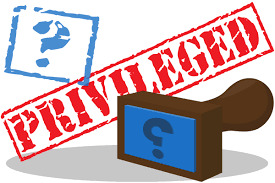
Is Attorney Work Product Still Privileged if We REALLY Need it?
You might expect an unequivocal yes in response to that question, but “it depends” is more appropriate because the Attorney Work Product privilege is not an absolute privilege. This blog post goes over the “substantial need” exception, that some people refer to as the “unavailability” exception. Attorneys who don’t familiarize themselves with these exceptions may experience some unpleasant surprises in the form of a judge ordering them to produce a document they expected privilege to shield.
The unavailability/ substantial need exception allows for disclosure of attorney work product where counsel can demonstrate a substantial need for the documents and that it would cause an undue hardship to otherwise obtain the sought relevant information from an unprivileged source. This exception generally applies to ordinary or fact work product, as an attorney’s mental process in preparing for litigation would not usually be subject to disclosure under discovery rules. This means that opinion work product IS an absolute privilege and its protections cannot be overcome by a showing of substantial need and undue hardship.
This exception applies only to fact/ordinary work product. The more a document / material consists of an attorney’s mental impressions, processes, or strategies, the more protection it will have from production in discovery.
For fact/ ordinary work product, Courts consider several factors when determining if a substantial need exists: relevance, availability of other similar evidence, and potential for impeachment, since the substantial need exception often comes into play when counsel intends to use the work product to impeach a witness’s statement. A demonstration that the document is relevant to the case is NOT sufficient on its own for this exception to apply; the party challenging the privilege must make a showing that they will be prejudiced if the material isn’t disclosed.
Further, an attorney can establish an undue hardship by proving that they have tried and failed to obtain the documents / materials or the substantial equivalent of the documents / materials, or that they are unable to obtain them from another source.
Keep in mind: this exception does NOT apply to the Attorney-Client privilege, because it would defeat the purpose of attorney-client privilege, which we will discuss in a future post.
*photo credit to Relativity
1 note
·
View note
Text
He could be all muévete imbecile!
“I would be one of Gus’ main men”
“I would be the character that helps out Jesse and Walter when they cook”
“I would-
ENOUGH- I would be the character that gets un-ironically ran over by lalo and his car in a .2 second clip and will only ever be known as civilian #564
43 notes
·
View notes
Text
Other social media sucks lol
I apologize for the rapid fire posts; I was forced to memorialize all my posts here after LinkedIn sent me a cease and desist for sharing my own writing.
I’m either done or almost done with the million posts in a row and should update at a more regular pace now. Please bear with me!
1 note
·
View note
Text
Appreciate anyone who reads and shares, I just got banned from posting on LinkedIn due to “copyright infringement” of my own writing so can now only post links to the blog and NO ONE clicks links on there. Sooooo.
Linda’s Email
Linda was uncomfortable with her manager’s advice, thought she might get fired, and she documented it in an email to herself.
She never ended up losing her job.
10 years after, she was called as a witness to testify in a case unrelated to her employment.
Counsel asked her about certain issues she mentioned in the decade old email, but she didn’t bring the same issue up.
The email came up during the discovery document review process, but a contract attorney marked the email as privileged and it wasn’t produced. At first.
But this case is an MDL, and the company tosses it in with other, unrelated, late-produced discovery and fails to mention it to opposing counsel, going against court order.
The attorneys find the email after Linda’s contradictory testimony. In open court, accusations of perjury fly across the room, the judge wonders out loud about contacting the witness, who’s now outside subpoena power, to advise her that she may need her own lawyer to handle the perjury charges… or would that risk witness tampering as the defense counsel wonders?
The company hires biglaw discovery experts.
When the judge instructs counsel to draft a jury instruction regarding the email and strikes part of the witness’s testimony, the company “coincidentally” settles the next day for $50 million dollars.
A hearing ensues where special masters decide about sanctions relating to the discovery misconduct allegations in a separate hearing. The company ends up paying $150,000 on attorneys fees, $10,000 relating explicitly to the failure to turn over that email.
“Because a contract attorney marked it off as privileged.”
“It was a mistake.”
It was a $10,000 mistake that led to an expensive investigation.
This is a true story. I didn’t include Linda’s last name, but she was a real witness I observed during the opioid trials as I watched this transpire in open court in 2021. This all stemmed from an email she sent to herself to an email address she used with her husband 10 years before this trial.
In case you’re wondering why I’m so interested in discovery reform and am working on an idea related to it.
I hope this story demonstrates why sometimes discovery work is more important than it may seem, even to the lawyers who assign it and sometimes to the lawyers working on it.
1 note
·
View note
Text
Another post from my discovery blog. I won’t be able to make all of them relate to tv and I hope you’ll still read my stuff !
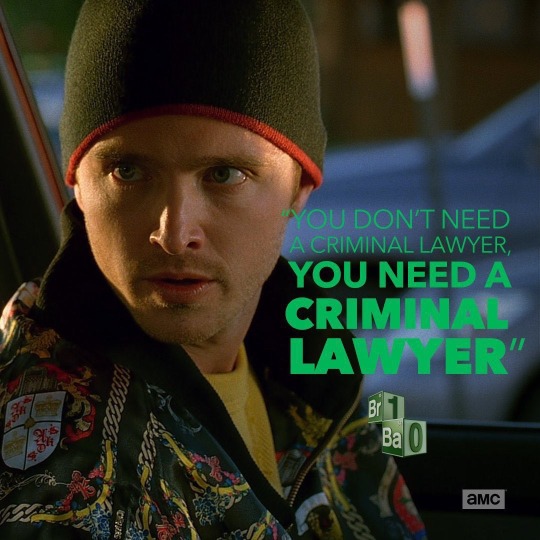
The Crime Fraud Exception
I mentioned the crime fraud exception as an exception to otherwise privileged attorney work product or attorney - client communications. Let’s go over the purpose and effect of this exception.
The crime-fraud exception prevents abuse of the relationship between the client and attorney. The purpose of the exception is to make sure that the protection and secrecy of attorney-client discussions doesn’t extend to communications made for the purpose of continuing or contemplating criminal or fraudulent behavior. Courts have also recognized other situations involving wrongdoing that don’t necessarily amount to crime or fraud and applied the exception there too.
Two conditions must be met for the crime fraud exception to apply:
1. The client must have made or received the otherwise privileged communication with the intent to further an unlawful or fraudulent act
2. The client must have carried out the crime or fraud
What’s the reason behind that second requirement? Otherwise this exception would prevent clients from seeking advice about a bad idea and receiving advice leading them to comply with the law.
For work product, it’s more difficult to apply exceptions like this to documents containing attorney’s mental impressions, conclusions, opinions, or legal theories. I’ll go over this more when we discuss the substantial need exception, an exception that applies to work product, but NOT attorney-client privilege.
Please comment with any discovery or privilege related info you’d like to hear about, including cases you may have read about in the news or seen on tv!
Not all of these can involve tv shows, but I’m doing my best to make this entertaining and educational!
#breaking bad#attorney client privilege#jesse pinkman#lawyer#saul goodman#better call saul#crime fraud exception#work product privilege#bcs
4 notes
·
View notes
Text
What the heck? Why does he do this lol
OKAY IM REWATCHING BETTER CALL SAUL I JUST GOT TO SEASON 2 EPISODE 9 and Hector just threw a ton of papers at Nacho's face how does no one talk about this I'm laughing so fucking hard rn😭😭😭
#hector salamanca#nacho varga#at least nacho ends up throwing Hector’s pills in his face#Hector is so rude to nacho#nacho deserved better
38 notes
·
View notes
Text
I’m a lawyer and some really great ones get stuck doing doc review …
in the kim mesa verda x doc review portion of my BCS rewatch and genuinely is this even legal? kim is a 4th year associate and she's being stuck with like what interns? students? doing work way way below her training grade for an indefinite amount of time, completely dependent on the arbitrary and capricious whims of her boss, fundamentally to punish her for the actions of a DIFFERENT lawyer at a DIFFERENT firm? actions for which kim is 0% responsible for???? jimmy's right she should sue their asses into oblivion!!!
9 notes
·
View notes
Text
Me2
i love that tony dalton (and therefore lalo) is a lefty 😭 because i'm also left-handed and seeing him write with his left and holding the gun with it was stupidly heartwarming
23 notes
·
View notes
Text
Delete Your Drafts
Delete your drafts.
They’re discoverable.
At least more discoverable than people think…
Judging by the confidential nature of the drafts I see every day, a lot of people don’t realize that the same privilege rules apply to those as to regular communications; it might not matter if you didn’t press send (I won’t apply any rule so broadly as to say it applies to all drafts), especially if:
it seems the intent was to send it; or
the intent can’t be determined easily; or
the many other situations people don’t tend to think of at the time, etc etc etc…
Delete them, finish them and send them, or keep them as long as you’re not trying to use your drafts folder as a file cabinet for info you think is protected by privilege …
2 notes
·
View notes